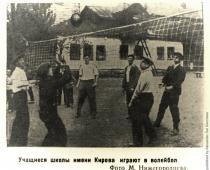In vacancies, it happens that they are required by specialists, where the following requirements are indicated - technical English.
What is it and what is it eaten with?
Let's say right away that this is such a separate level of knowledge of the English language. It has its own characteristics. Who needs knowledge of English at this level? These, of course, are engineers, motorists, programmers, specialists involved in technology, etc.
This is a pretty broad concept.
Scope of technical English
- Army and navy - weapons, equipment, etc.
- Automotive industry: fuels and lubricants, cars.
- Medical and construction equipment.
- Engineering - communications.
- Mobile phones and cameras.
- IT sphere, everything related to computers.
- Trade and Marketing
Of course, this list is not complete.
Learning this type of English is vital if your profession is related to the technical field. If you master this level, it will increase your value as an employee, because you will be able to work, if necessary, with foreign colleagues.
Why do you need technical English and how to learn it?
First of all, as already mentioned, in order to increase your level as a specialist, and, accordingly, value.
There are two ways to learn English:
- Independent study.
- Studying from textbooks.
If you want to study on your own, that is, for example, such manuals as Technical English - “Professional English”, you can also consider English for technical universities for technical specialties, edited by Orlovskaya, as a manual.
It is also necessary to read the technical literature in your field - this is how you will gain the necessary lexicon. You can also read articles in popular science magazines, newspapers, educational programs in English with a technical focus. So you can learn the basic
Thus, this level of English, called technical, is applied to the direction that you have chosen. The main thing is to learn the terminology in your field.
Learn new things, learn English at a high technical level and be successful!
And what do they eat it with? The term "technical English" can be conditional, which means it can be used in various fields of activity, such as IT, where knowledge of web development prevails, engineering, where mechanisms and communications are encountered, or the navy, where people manage everything that shoots and moves. That is why at the initial stage it is important to clearly identify English in which field of activity you are interested in. Interestingly, even the British themselves do not know all the terms associated with technical English, just as we cannot know those highly specialized words and expressions that are used in aviation, shipbuilding and the automotive industry.
It is important to note that technical English is, first of all, a special vocabulary, which, in combination with grammar, allows you to communicate and correspond with people who revolve with you in the same professional circle. It is necessary to clearly understand that, associating yourself with technical English, you must know every term, every expression that will help you give the most accurate instructions and unambiguously interpret any task.
In order to be as fast as possible, you must have knowledge of grammar and spelling. It is very important to understand that the same term can have many meanings, and their translation can be radically different. That is why you must master not only English synonyms and variants, but also memorize their Russian equivalents.
To overcome the subtleties of professional English, it is necessary to work properly with specialized literature, which is aimed at translating technical texts. In addition, take a look at the numerous dictionaries and tutorials designed specifically for those who work with technical English. These may include the following collections:
Read English scientific texts. Course for beginners.
 English-Russian explanatory scientific and technical dictionary on system analysis, programming, electronics and electric drive. Volume 1
English-Russian explanatory scientific and technical dictionary on system analysis, programming, electronics and electric drive. Volume 1
 English-Russian dictionary computer terms
English-Russian dictionary computer terms
 Technical dictionary (English-Russian, Russian-English). X-polyglossum. Publisher: IDDC-2006 Recommended for technical professionals.
Technical dictionary (English-Russian, Russian-English). X-polyglossum. Publisher: IDDC-2006 Recommended for technical professionals.
 English textbook for technical universities and universities Orlovskaya I.V., Samsonova L.S., Skubrieva A.I. (For students of technical universities and universities of machine and instrument-making profile).
English textbook for technical universities and universities Orlovskaya I.V., Samsonova L.S., Skubrieva A.I. (For students of technical universities and universities of machine and instrument-making profile).
The tutorials mentioned above will help you overcome technical English on your own. However, in order to achieve the goal as quickly as possible and come to an understanding of what real technical English is, a specialist in this field can come to your aid. The easiest option is to find good ones, where they will help you master all the intricacies of the technical field, and on your own you can work at home, practicing the knowledge gained in practice.
Remember that everyone who is connected with the technical field simply must be aware that even Technical English is always updated with new words and expressions, and you simply have no right not to know them, because sometimes not only correct work may depend on you mechanisms, but also the lives of people.
Send a request for training right now and get completely free access to the first lesson, where we will tell you about 14 secrets for learning English quickly!
You can now learn technical English courses in a short time on modern program“TECHNICAL ENGLISH” from MBA CITY Business Academy!
The purpose of the intensive course "TECHNICAL ENGLISH" is to allow anyone who wants to quickly learn the topics of technical English for work, as well as to study turns and set expressions to describe the principles of operation of various mechanisms.
The Technical English course is designed both for those who wish to learn English for work in industry, and for those who have already mastered the intermediate level and want to develop further.
In the course of training in technical English, students of the English language courses for engineers will have to learn all the necessary grammatical forms and lexical features of the English language for technical descriptions. You will also master the skills of negotiating with manufacturers of complex technical equipment in English and learn to understand technical instructions in English, learn how to use your knowledge in professional communication, master professional terminology and develop the confidence needed to break down the language barrier.
You will learn and be able to put into practice many other important language skills - for example, writing technical specifications in English, checking technical indicators in English, using English to explain technical problems and breakdowns in equipment, and much more.
Still looking for the best place to take technical English courses? Whether you live in Moscow or any other city in the world, study English at a prestigious Institute foreign languages now everyone can do it without leaving home.
Thanks to the technical English course at the Institute of Foreign Languages of the MBA CITY Business Academy, you will be able to improve your language skills and become a valuable specialist - a professional with knowledge of a foreign language!
For a course of 3 levels of technical English from the MBA CITY Business Academy, we offer the most convenient and effective ways learning.
Distance English course. Modern and fast way to master technical English is to complete a distance learning program at the Institute of Foreign Languages of the Business Academy MBA CITY. The distance technical English course provides complete and up-to-date information sufficient to learn how to communicate and understand technical instructions fluently. A clear and detailed multimedia presentation of the distance course material allows students to master this training program on their own.
Individual learning format. This format provides for many learning options, including tête-à-tête with a teacher, corporate training with the departure of the teacher to a private trader or organization. Besides, individual training You can go online via video link or Skype. Do you choose face-to-face classes in English or via Skype, in any case, in an individual format, you will have direct communication with the teacher. The individual learning format also gives you access to remote course material.
Each lesson of the course includes several informative blocks: it consists of text materials with the addition of useful illustrations. Also in full distance course technical English includes diagrams, tables, audio and video, having become acquainted with which, after the first lesson, course participants will be able to apply their knowledge in communicating in English. You can start classes almost instantly - access to the program will open after paying for the course through Personal Area on the site. Do you have any questions? Specialists of the Institute of Foreign Languages of the Business Academy MBA CITY will promptly answer them through the website or by phone and will definitely provide you with professional support.
English online courses Business Academy MBA CITY is your chance to learn everything you need to develop personally and professionally in the international field!
After completing the “TECHNICAL ENGLISH” program from the MBA CITY Business Academy, you will be able to feel free in an English-speaking environment and perform your job duties that require knowledge of English as efficiently as possible.
Expanding your knowledge of the English language means contributing to your future personal success and professional growth.
Leave a request for general course technical English at the Institute of Foreign Languages of the Business Academy MBA CITY on our website today. Hurry up to start learning and improving your skills. The result will undoubtedly be an increase in your income and an expansion of the range of professional opportunities!
Upon completion of the course, you will be awarded a certificate of state. sample with an international application on the successful completion of the "TECHNICAL ENGLISH" program.
The purpose of the textbook is the formation and development of the competence necessary for the use of English in the field of professional communication. The textbook allows you to develop the skills of communicative reading of scientific literature, oral and written scientific speech, expand vocabulary at the expense of general scientific and special vocabulary, work out typical scientific text grammatical phenomena of the English language. The textbook contains original scientific and popular science texts that help expand the horizons of students.
This textbook is intended for students of engineering and technical specialties with an intermediate (Intermediate) level of English proficiency (which corresponds to level B1 on the Common European Framework of Reference for Language Proficiency) studying in educational institutions secondary vocational education.
Examples.
Write down the following formulae in your notebooks. Check the results as a class.
1) V over I equals R (all capital letters)
2) P subscript one V subscript one equals P subscript two V subscript two (all capital letters)
3) one over u plus one over v equals one over f (all small letters)
4) capital F equals small m small v squared all over small r
5) one over R equals M over EI (all capital letters)
6) sigma over capital Y small n equals capital M over capital A small h capital R subscript small f
7) capital A equals two pi capital R subscript small c, open square brackets capital R subscript small c minus square root open brackets capital R subscript small c squared minus small d squared over four, close brackets, close square brackets
8) tau equals four capital Q over three pi capital R to the power of four, open brackets, capital R squared minus gamma squared, close brackets
9) F is proportional to M subscript one M subscript two all over R squared (all letters capital)
10) T squared over R cubed equals four pi squared over GM (all capital letters)
Put the verbs in brackets in the correct tense, Present Perfect or Past Simple.
1. They (carry out) a series of experiments this week.
2. They (introduce) some new methods of investigation lately.
3. He (publish) a few papers on the problem this year.
4. We (clarify) this question last week.
5. Prof. Brown (give) some useful recommendations a few days ago.
6. There (be) a heated discussion at the seminar today.
7.Dr. Clark (be) in charge of this project for some time now.
8. Our efforts (be) useless so far.
9. These studies (be) very intensive until now.
Free download e-book in a convenient format, watch and read:
Download the book English for Engineers, English for Engineers, Kovalenko I.Yu., 2015 - fileskachat.com, fast and free download.
- English for Economists, Agabekyan I.P., Kovalenko P.I., 2005 - Tutorial corresponds to the state educational standard and the requirements of the English language program for non-linguistic universities. It is designed for 4-6 semesters ... English language books
- English for Economists, Agabekyan IP, Kovalenko PI, 2004 - The textbook complies with the state educational standard and the requirements of the English language program for non-linguistic universities. It is designed for 4… English language books
- English for engineers, Agabekyan I.P., Kovalenko P.K., 2002 - A textbook for students of technical universities in the first and second stages of education corresponds to the program in English for non-linguistic universities ... English language books
- English for technical universities, Agabekyan I.L., Kovalenko P.I. - Vowel sound i When pronouncing a short vowel sound i, the tip of the tongue is at the base of the lower teeth: a shade of the Russian sound and ... English language books
The following tutorials and books:
- English, grade 9, Diagnostic work to assess the quality of education, Veselova Yu.S., 2015 - The collection offers diagnostic work in English for grade 9 of secondary schools, with which you can control the level of development ... English language books
- English pronunciation that everyone envy, or How to learn to speak English without a Russian accent, A practical course in two books, Book 1, Shevar de Nidze V., 1997 English language books
- English pronunciation that everyone envy, or How to learn to speak English without a Russian accent, A practical course in two books, Book 2, Shevard de Nidze V., 1997 - The language course "Master Sound" is the only most complete textbook on English pronunciation, written in a fascinating way especially for the Russian-speaking audience. … English language books
- English for Sociologists, Kuzmenkova Yu.B., Zhavoronkova A.R., 2014 - This course is addressed to students of non-linguistic universities (level (Pre-) Intermediate), specializing in the field of sociology; it allows you to master the skills of the English-language general scientific (academic) ... English language books
Previous articles:
- Practical grammar of the English language, Shirokova G.A., 2013 - The textbook contains systematized information on the grammar of the English language, necessary for understanding and translating English original texts. Recommended to study... English language books
- English in 5 minutes, Orlova N.F., 2014 - The manual contains 5 main topics: My family, Living to eat, Time is money, Going on vacation, And ... English language books
- All dictionary words of the English language, grades 1-4, Polozhentseva D.V., 2016 - The proposed book contributes to the qualitative assimilation of the basic English vocabulary studied within the program elementary school, and covers topics such as My... English language books
- Easy English Grammar, Lavrinenko T.M., 2000 - The proposed Easy English Grammar is designed for a wide range of English learners in various forms of education or independently. The material is organized... English language books
The people have the term "technical English" - this is the level at which you can read technical documentation, articles and books. This is the minimum level with which you can get a job as a programmer. Of course, this is not language proficiency. Vocabulary covers only a small set of topics, does not allow reading fiction and communicate with people. But it is easy to master.
You need to know it because the only actual source of truth is the official documentation and forums like StackOverflow. They are presented in English. For popular things kind people do translations, but, with rare exceptions, they are either outdated or incomplete, for many reasons.
The story is similar with books. Publishing houses translate into Russian only literature for a wide range of readers and beginners. But even such translations come out with a delay of a couple of years. Advanced literature is not translated into Russian at all: professionals, who are few in number, can read books in the original, and beginners do not buy them.
To learn how to understand technical texts, start using English at work. In other words, put yourself in an environment where you will encounter language every day. How it happened for me:
I switched the interfaces of the OS, phone, Internet services and social. nets into English. This gave me a starting vocabulary: I understood the names of elementary things, tools in Photoshop, settings, and so on. It did not cause discomfort, since I remembered where everything was.
For the first time, from cover to cover, I read the documentation for the tools that I used: jQuery, some PHP framework that was my main then, Django. I read and translated every phrase with Yandex.Translate. Somewhere here I realized how my knowledge of these tools was superficial and I need to continue.
In the same way, I reread a book on development in English, which I had already read in translation. The initial acquaintance with the topic is important here: you know in advance what is being discussed and you can guess the meaning of words from the context, without constantly looking into the dictionary.
I began to make requests in Google English and look for answers in English-language articles. The vocabulary, which was accumulated from the previous paragraphs, made it possible to formulate phrases for the search. He also translated unknown words from Russian.
Total: read and translate. This is enough to learn to read. Earlier in this blog, I published translations of random articles, then I did the same for the online magazine frontender.info and even translated a small book on Go. The translator from me is so-so, but it worked.
Text comprehension is tied to how many words you know. Just by reading the text, you will memorize a lot of things in a passive mode, but special techniques with little effort allow you to memorize more words and phrases.
Learn phrases or whole sentences, not individual words. Separately, learning words is difficult and pointless: as in Russian, one word in different contexts means different things. With phrases, it's easier: the meaning of a word can be understood from the context if you don't remember the exact translation.
Use the spaced repetition method. There are a lot of programs for this business. I am using Anki. It is, of course, ugly, but flexible and free, released for all platforms and can synchronize between them. In general, nothing better has yet been invented. Write down the phrases that you translate there and repeat every morning on the way to work.
Do not use browser plugins for translation. Just a personal observation. Try using a paper dictionary or copying the phrase into the translator window with your hands, without copy-paste. So you will try to remember the word right away, so as not to climb into the dictionary for it a second time. But the action “click on a word and get a translation” is not enough to motivate memorization - it’s too simple and takes two seconds.
What not to do
Don't memorize extra words. Language learning services and courses offer ready-made sets of words for memorization and texts for training. But I already had my own sets of words and my own texts. What I studied additionally turned out to be an extra burden: in technical texts, words from the everyday life of Americans are almost never found. So, there is nowhere to even apply them outside the course. And unused knowledge tends to be erased from memory.
Don't rush into grammar. Grammar is, in fact, materiel. It is needed if you are going to use the language to the fullest: for speaking and writing. However, it has almost no effect on reading, vocabulary decides here. I don’t write or say anything like that, so the grammar was partially eroded along with unnecessary words. In my opinion, this should be the next meaningful step in language learning.
Conclusion
Here's how I went about 2-3 years ago. Subscribe. Another time I will tell you how to move from technical English to human.
- In contact with 0
- Google+ 0
- OK 0
- Facebook 0








